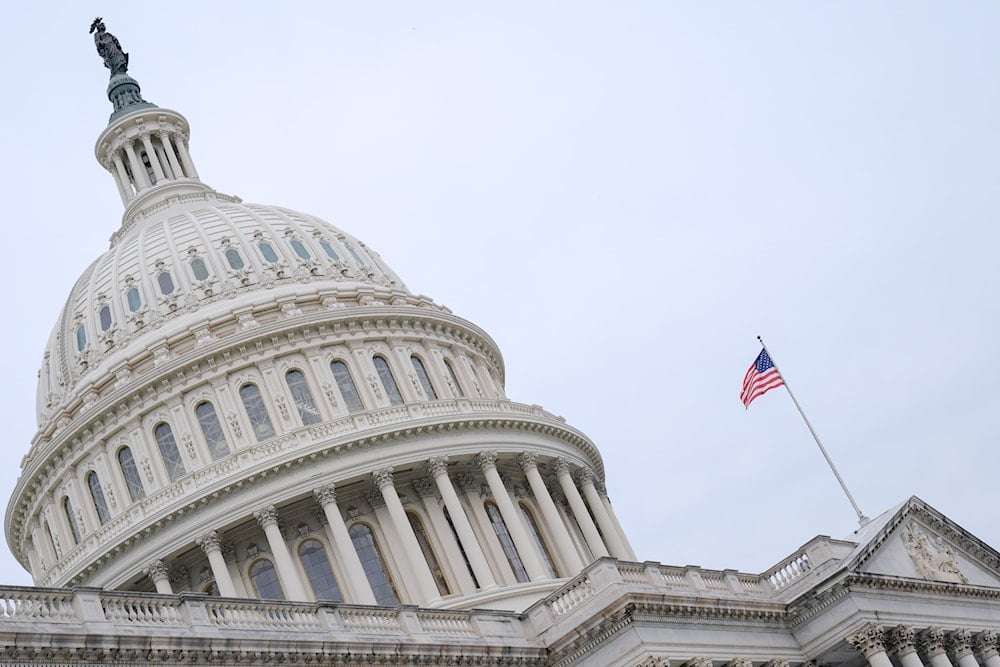US Senate votes to repeal Middle East war laws
The US Senate has voted to repeal the 1991 and 2003 Iraq War authorizations, marking rare bipartisan support to limit presidential war powers through the 2025 defense bill.
-

The US flag flies atop the Capitol Building, on September 29, 2025, in Washington. (AP Photo/Mariam Zuhaib)
A bipartisan coalition in the US Senate has voted to repeal two longstanding authorizations for the use of military force (AUMFs) that paved the way for US military action in Iraq. The move marks a significant step in the decades-long effort to rein in expansive presidential war powers.
In a voice vote, senators approved an amendment to the 2025 National Defense Authorization Act (NDAA) from Senator Tim Kaine (D-Va.). The amendment targets the 1991 Gulf War and 2003 Iraq War authorizations, laws that have remained on the books despite the formal end of both conflicts.
Though some lawmakers had previously expressed interest in keeping the 2003 Iraq authorization active, none demanded a roll call vote on the measure. Even Senate Armed Services Chair Roger Wicker (R-Miss.), who opposed the repeal, acknowledged the political momentum, saying, "I see how the wind is blowing."
The House had already included a similar repeal in its version of the NDAA, making it more likely that a final negotiated defense bill will include the repeal language. However, it is not yet guaranteed. The vote is seen as a small but meaningful victory for lawmakers seeking to reform US war powers. Both Democratic and Republican supporters of the repeal argue that the AUMFs are outdated and susceptible to misuse by future presidents.
'Close the book on forever wars!'
Democrats in particular pointed to former President Donald Trump’s use of the 2003 Iraq authorization to partially justify the 2020 drone strike that killed Iranian commander Qassem Soleimani in Baghdad. They view the repeal as a down payment on broader reforms, including potential revisions to the 2001 AUMF, which remains the primary legal foundation for global counterterrorism operations.
"Both chambers have passed the same repeal before on a bipartisan basis," said Senator Todd Young (R-Ind.). "Let’s do the same here in the Senate and close the book on these forever wars."
The Senate’s action comes amid broader unease over recent military operations ordered by Trump. Lawmakers have criticized the decision to strike vessels near Venezuela, allegedly involved in narcotics trafficking, without congressional approval. However, efforts to restrict such actions have struggled to gain bipartisan traction.
This week, the Senate rejected a resolution from Senators Tim Kaine and Adam Schiff (D-Calif.) that would have barred further military operations in Latin America without congressional authorization. Only two Republicans supported the measure. Although the final version of the NDAA is still subject to negotiation, the inclusion of the 1991 and 2003 AUMF repeal in both the House and Senate versions gives it the best chance yet of becoming law.
If successful, the repeal would represent the most significant rollback of executive war-making authority in years, underscoring growing bipartisan concern over the unchecked use of military force.

 3 Min Read
3 Min Read








